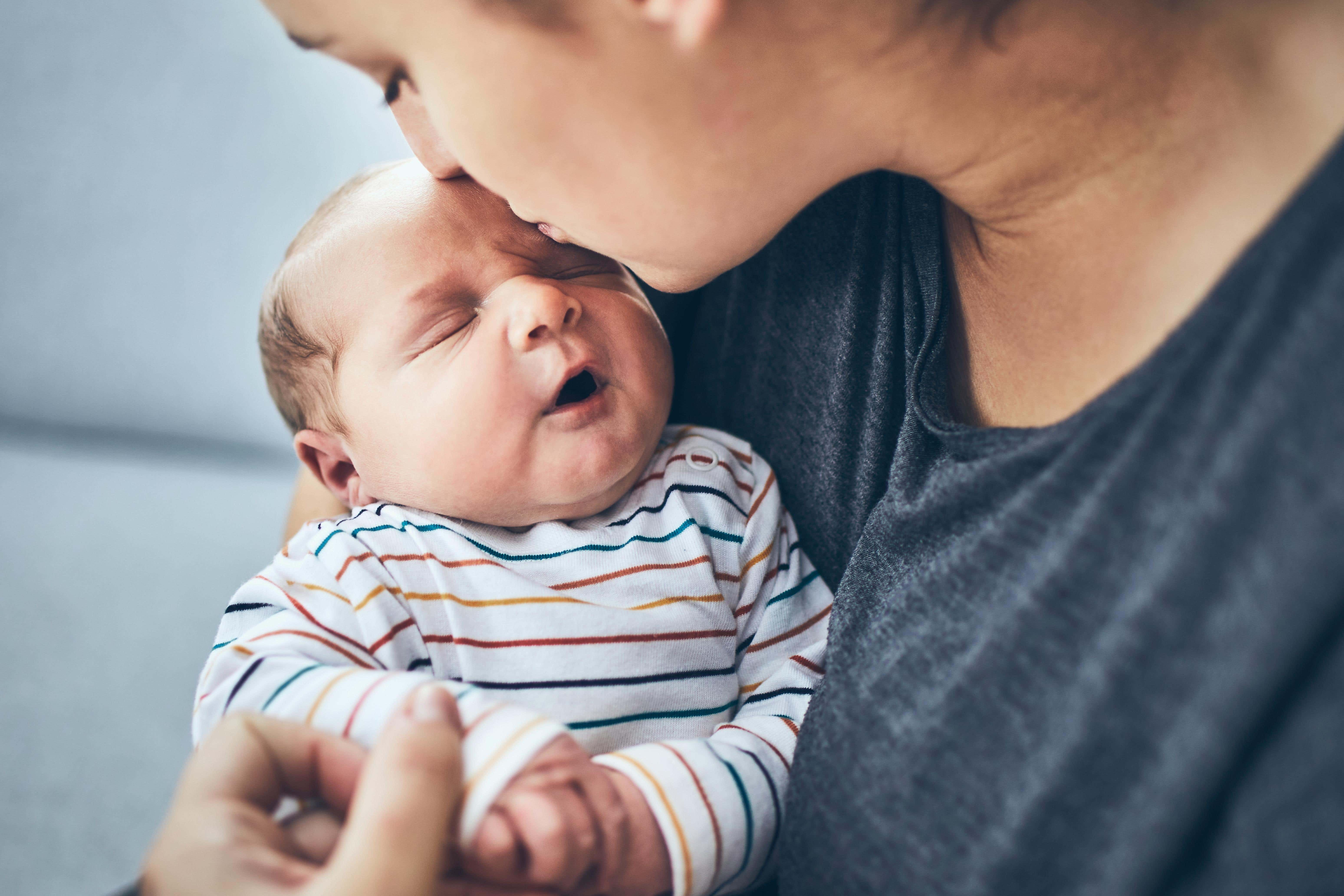One in 10 mums returning to work within 4 months of birth due to financial woes
‘I ended up with postnatal alopecia. I had bald patches in my hair. Going back to work was the most stressful thing,’ mother says

One in 10 mothers are forced to go back to work within four months of having a child due to being unable to afford to stop working for longer, a new study has found.
The report, by Pregnant then Screwed, discovered the majority of mothers who are reducing their maternity leave are doing so due to struggling with money.
Researchers, who polled over 5,100 mothers who were at least 20 weeks pregnant or who have a child under the age of one, found only a quarter of mothers are taking their full maternity leave period.
Hannah Reynolds, who is from Lincolnshire, told The Independent: “I went back to work about three months after giving birth. It was awful. I was exclusively breastfeeding but then I had to go onto bottle-feeding her as I had to go back to work.
“I didn’t want to. I had to express my milk during my breaks at work. I went into working for a car dealership as a receptionist. I was missing her like mad.”
The 30-year-old explained she was diagnosed with severe postnatal depression in the aftermath of the birth – attributing this to an “accumulation of different stresses” in her life which returning to work exacerbated.
“I ended up with postnatal alopecia,” Ms Reynolds added. “I had bald patches in my hair. Going back to work was the most stressful thing. I haven’t experienced something quite so daunting – having to leave my child with people I didn’t know at that stage was super difficult.”
She said there “was no way on earth” she would have been able to survive on statutory maternity pay as she recounted how she struggled to sleep during this period and was put on antidepressants.
“I felt anxious leaving her when going back to work. I’m still paying off the debt I got into for simply trying to survive back then,” Ms Reynolds said.
Another self-employed mother said: “I returned to work after just two weeks of maternity leave as maternity allowance for the self-employed is so poor.
“I took my four-week-old baby to a new pitch meeting with all men, they asked me if she’d stop crying. I had another meeting where they told me not to tell the client I’d just had a baby and I had to pump my milk in the loo.”
In the UK, statutory maternity leave is paid for up to 39 weeks – with mothers getting 90 per cent of average weekly earnings before tax for the first six weeks. After that, mothers get £172.48 or 90 per cent of their average weekly earnings, whatever sum is lower, for the next 33 weeks.
Joeli Brearley, Pregnant Then Screwed’s founder and chief executive, said: “We have some of the lowest rates of parental leave pay in the world. National minimum wage is the legal minimum a person should be paid, yet new mothers are meant to survive on less than half of this amount for 33 weeks, whilst their outgoings remain the same. And, of course, the cost of living crisis is exacerbating this issue.”
Ms Brearley explained the “perinatal period is critically important” to both the mother and the child’s health and welfare as she warned everyone should be “deeply concerned” about the “degeneration and a degradation” of this important time.
“Simultaneously, and I would argue not unrelated, NHS data from August 2022-March 2023 showed an 8 per cent increase in new mothers accessing support for mental health services on the NHS,” she added.
“We have also seen an increase in infant mortality in the UK. Poverty has a significant impact on the risk of stillbirth and death during infancy. Ultimately, It is a false economy to not pay parental leave at a rate at which families can survive and thrive.”
It comes as new research by Maternity Action found around half of mothers were purchasing unhealthier food and one quarter had gone without food to be able to feed their children.
The study, which polled 1,394 mothers, discovered six in 10 had used a credit card or borrowed money to get by – a rise from around half in 2022.
Researchers also found around six in 10 went back to work before they completely recovered from the birth due to financial reasons.
A spokesperson for the Department for Work and Pensions said: “We want every child to have the best start in life, which is why have increased statutory maternity pay and maternity allowance by over 10 per cent this year.
“Parents who are ready to return to work will benefit from the single biggest investment in childcare in England ever and we’re supporting those who are struggling with record financial support worth around £3,300 per household as we drive down inflation to make everyone’s money go further.”
Join our commenting forum
Join thought-provoking conversations, follow other Independent readers and see their replies
Comments
Bookmark popover
Removed from bookmarks